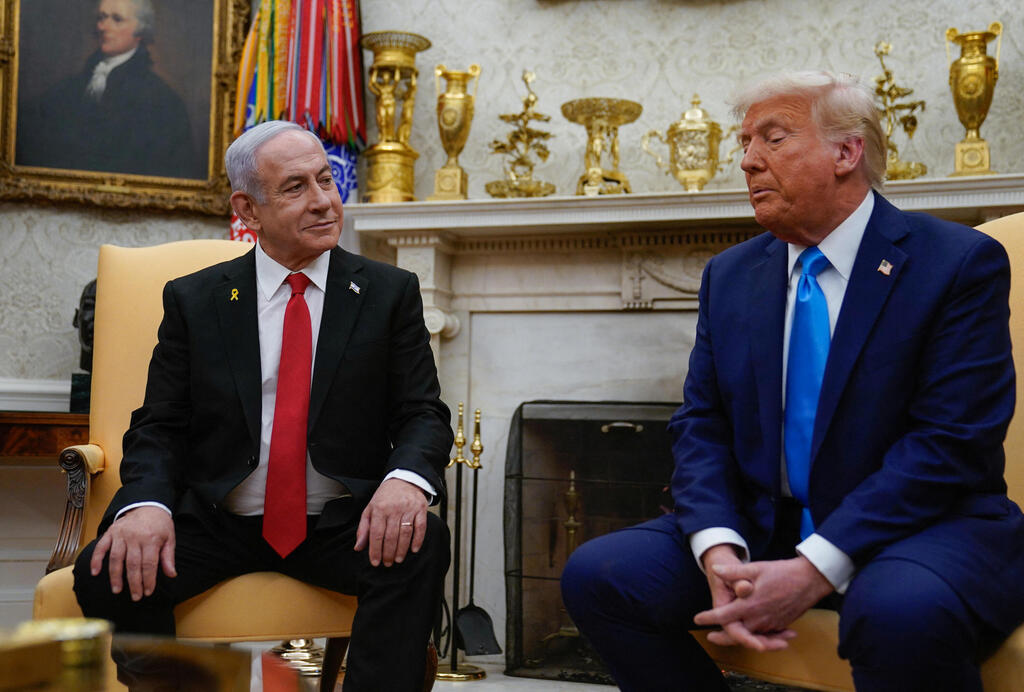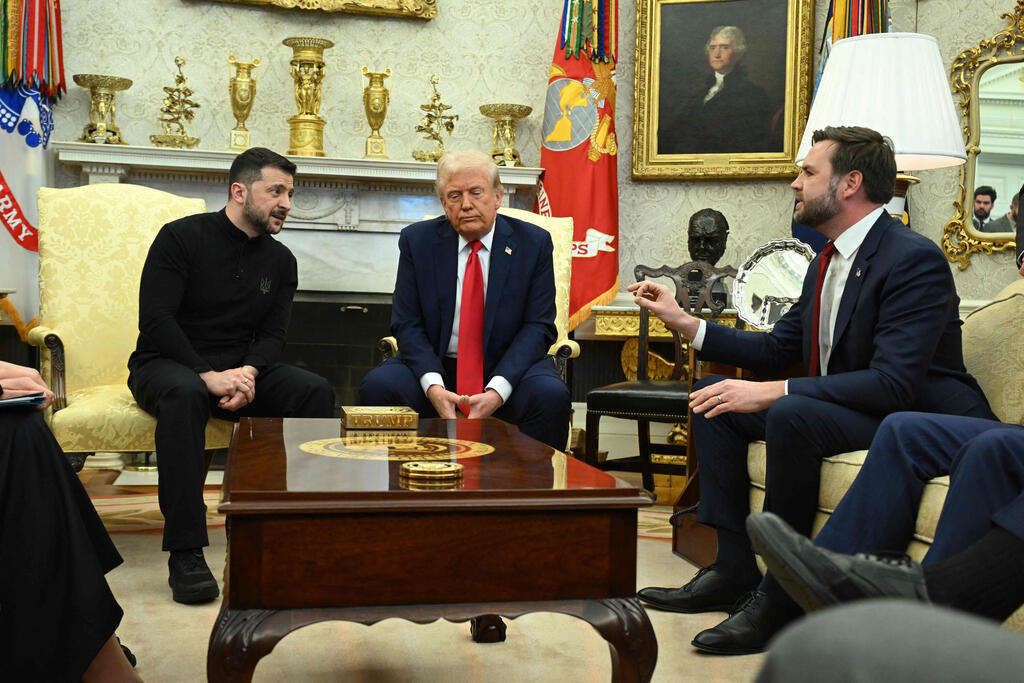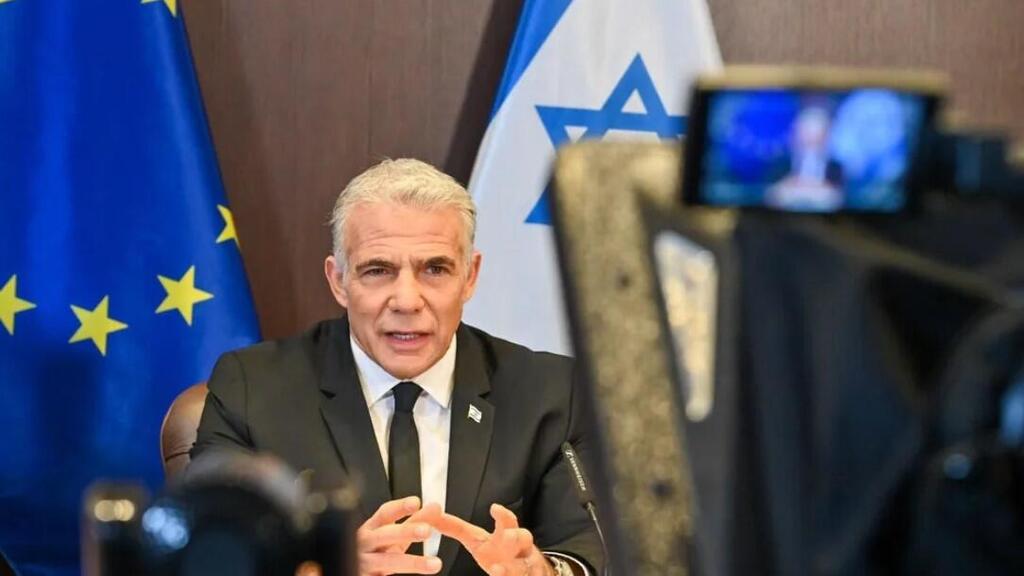The opening months of Trump’s administration marked a honeymoon period for Israel’s government and Prime Minister Benjamin Netanyahu. In the White House now sits a president who understands Israel and its interests, aligns with the logic of the right-wing government, and even pushes initiatives — like a plan for Gaza migration — that go beyond what even the Israeli right envisioned. But alongside this optimism lies a sobering reality: Instead of a partner in the White House, Israel faces a landlord — or perhaps a monarch.
In the Oval Office, Netanyahu encountered a man making strategic decisions for him. Through his envoy, Steve Witkoff, who began working even before Trump assumed office, Trump imposed the first stage of a hostage deal that Netanyahu had resisted. This agreement could have been made a year ago but was now forced upon him.
Similarly, the U.S. is now pressuring Israel to proceed with negotiations over its border with Lebanon — a step Netanyahu likely opposed when Yair Lapid signed the maritime border agreement with Lebanon, which Netanyahu had previously called a "betrayal" and vowed to cancel. When Netanyahu agreed to a cease-fire with Hezbollah, he effectively surrendered to former President Joe Biden, which has now become a surrender to Trump. In practice, Netanyahu is going to implement Lapid's agreement to the letter.
Trump is not content to merely be U.S. president — he aspires to act as Israel’s prime minister, too
The direct negotiations between the U.S. and Hamas were also imposed on Israel. These discussions were conducted from a position of strength, and although the talks failed — with the U.S. announcing they would not resume—had they succeeded and Hamas realized it was better to deal directly with Trump, it’s likely Israel would have faced further American-imposed moves, leaving no room for its own decision-making.
On the issue of hostages, the American approach offers significant hope. Trump and his envoy Witkoff are unrelenting in their efforts to secure a cease-fire and hostage release. Unlike Biden, Netanyahu cannot refuse them — and they know it. Additionally, Israel finds itself complying with American directives at the UN, such as voting in favor of Russia and against Ukraine.
It must be acknowledged: Israel is currently fully subordinate to the American agenda. To its surprise, it is discovering that Trump is not content to merely be U.S. president — he aspires to act as Israel’s prime minister, too. So far, he’s succeeding, as Israel’s government accepts his demands and requests without resistance.
Netanyahu, it seems, will avoid the treatment Zelensky received in the White House, as long as he continues to comply with Trump. However, the moment Netanyahu stops, he risks a similar fate — and he knows it. For now, Netanyahu has little alternative. This explains Israel’s silence when Trump’s envoy for hostage affairs, Adam Boehler, revealed his negotiations with Hamas. Israel also remained quiet when Boehler mocked Minister Ron Dermer in interviews and joked about having coffee with Hamas leaders.
Opposition and PM office jostling for control of the narrative
This chain of events has naturally spurred political attacks between Likud and Yesh Atid. Yesh Atid reminded the public how "Netanyahu’s propaganda machine" accused Lapid’s government of surrendering to Hezbollah, only for Netanyahu to now negotiate over territory and prisoner releases with Lebanon.
"Two years later, under Netanyahu’s leadership, Hezbollah has established outposts on Israeli land, the Jewish people have experienced their greatest tragedy since the Holocaust, the northern region has been evacuated and bombarded, and the prime minister who promised deterrence is now negotiating over territories and releasing terrorists to Lebanon," Yesh Atid stated.
In response, Likud’s spokesperson fired back: "Lapid claimed the shameful surrender agreement he signed with Hezbollah ‘preserved the security of northern settlements,’ ‘improved security,’ and ‘reduced the chance of military escalation with Hezbollah.’ Unlike Lapid, Prime Minister Netanyahu’s policies have brought Hezbollah to its knees, eliminated Nasrallah and senior members of the organization, significantly damaged Hezbollah’s rocket capabilities, and dismantled its presence in Syria. Unlike Lapid, Netanyahu has not ceded an inch of sovereign territory to Lebanon. On the contrary, he has maintained Israeli military presence in five strategic points within Lebanon to protect our settlements. While Lapid worries about the electoral threshold, Netanyahu ensures security."
Regarding the Lebanon agreement talks in Naqoura — including representatives from IDF, the U.S., France, and Lebanon — resulted in the establishment of three joint working groups. These will focus on stabilizing the region, addressing five Israeli-controlled points in southern Lebanon, disputed areas along the Blue Line (13 points in total), and the issue of Lebanese prisoners held by Israel.
Get the Ynetnews app on your smartphone: Google Play: https://bit.ly/4eJ37pE | Apple App Store: https://bit.ly/3ZL7iNv
In an unprecedented move, Israel decided, in coordination with the U.S. and as a gesture to Lebanon’s new president Joseph Aoun, to release five Lebanese prisoners, including one Hezbollah member. This gesture was not without context: President Aoun was elected against the will of the Shiite axis and has been taking behind-the-scenes steps against Hezbollah. Israel aims to strengthen the moderate faction in Lebanon by taking concrete actions.
At the same time, Israel clarified that if Lebanon’s military deploys forces in the south it would begin withdrawing from positions it currently holds. Israel had agreed to discuss disputed border points with Lebanon two years ago at the request of the previous envoy, Amos Hochstein. While the war delayed the implementation of this agreement, it had already been conveyed to the U.S. administration. This is a significant step toward advancing dialogue between the countries, including resolving border disputes.
A potential Israeli-Lebanese agreement is a clear American interest, as well as that of Saudi Arabia, Trump’s key regional ally. The Saudis seek to bolster their position in the region at Iran’s expense. Trump, eager to secure a deal with Saudi Arabia — both for a potential Nobel Prize and to enrich his family and billionaire friends — would not hesitate to broker such an agreement at Israel’s expense. Netanyahu and his government, however, seem unwilling to express any opposition. For those looking for proof of Trump’s power, they need look no further than Ukraine’s capitulation to all U.S. demands.





